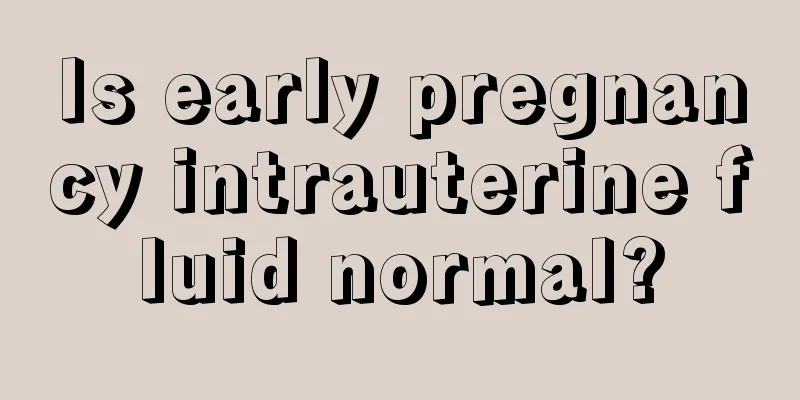Will cervical cancer recur after complete hysterectomy?

|
Cervical cancer is a disease with a relatively high mortality rate. This disease will affect the patient's life span. Patients with cervical cancer are infertile and need to receive timely treatment. Cervical cancer can be cured in the early stages, but it will spread in the middle and late stages, and the difficulty of treatment will increase. Therefore, cervical cancer needs to be treated through surgery and chemotherapy, and the total removal method is generally chosen. No matter what stage cervical cancer is in or what treatment method is chosen, there is a possibility of recurrence. Even if it is completely removed, the possibility of recurrence cannot be ruled out. For patients with cervical cancer who undergo radical resection surgery, if there are no problems 5 years after the surgery, there will generally be no recurrence. Although surgical treatment is relatively thorough, even if the cancer cells have not metastasized, cancer may recur in the pelvis. Therefore, patients should pay attention to regular check-ups after surgery. It is recommended to check 1 month, 3 months, and 6 months after surgery. One year after surgery, check every 6 months, so that you can know whether there is any recurrence in time. Postoperative treatment for cervical cancer is also critical and plays an important role in preventing recurrence and metastasis. Currently, the main postoperative treatments for cervical cancer are radiotherapy, chemotherapy and traditional Chinese medicine. Currently, the commonly used postoperative treatments for cervical cancer in clinical practice mainly include radiotherapy, chemotherapy and traditional Chinese medicine treatment. Of course, the specific treatment of cervical cancer after surgery should be based on the patient's specific situation. Scientific and reasonable treatment can reduce the chance of complications and recurrence, and can achieve faster recovery. It is recommended that if the physical condition permits after cervical cancer surgery, effective systemic chemotherapy or adjuvant radiotherapy can be chosen to consolidate the therapeutic effect, kill residual cancer cells after surgery, and better control and prevent recurrence. It can be combined with Chinese medicine for treatment, which can not only improve the body's immunity, but also reduce the toxic and side effects of chemotherapy and radiotherapy and enhance the effect. From the above introduction, it can be seen that the harm of cervical cancer is very great. Even if a complete resection surgery is performed, recurrence is possible. Therefore, patients must pay attention to care after surgery, regular check-ups, and at the same time cooperate with some radiotherapy, chemotherapy and traditional Chinese medicine treatments to better consolidate the therapeutic effect, prevent recurrence and metastasis of cervical cancer, and minimize the harm. |
<<: Can a smooth cervix lead to cervical cancer?
>>: Will the embryo implantation cause stomach pain?
Recommend
What should I do if the girl I secretly love breaks up with me? What are the wrong ways to comfort a girl I secretly love after she breaks up with me?
Breaking up does not mean you are abandoned, no m...
Can HPV16 positive be cured on its own?
Viruses and bacteria in women's bodies requir...
Can I chew gum while breastfeeding?
Chewing gum has the effect of freshening breath, ...
It is normal to bleed for a few days after medical abortion. If it is abnormal, you need to see a doctor.
In the case of early unexpected pregnancy, you ca...
Can a 12-year-old girl grow taller after menstruation?
Every girl hopes to grow to her ideal height, so ...
From gargling to brushing teeth: How did people in ancient China keep their mouths clean?
Speaking of oral health, it seems that more and m...
What is the reason for the strong sour smell of vaginal discharge?
A normal woman's leucorrhea should be white o...
Four bad bra wearing habits that cause great damage to breasts
1. Women who think that using steel braces can cr...
How to take care of your uterus?
Everyone hopes to have a young face and a healthy...
Signs of sexual desire in women
As the saying goes, women are like wolves at thir...
Symptoms of rising female hormones
The lack of female hormones is a reflection of yo...
Lower abdominal pain and anal swelling during intercourse
If you experience lower abdominal pain and anal s...
Brown discharge from below
As people age, various aspects of their bodies ch...
It is normal to delay your period for a few days.
Sometimes it’s okay to have delayed menstruation....
Left eye twitching means good fortune, right eye twitching means disaster? Don't be superstitious, it's actually your body "warning"
“If your left eyelid twitches, good things are ab...









